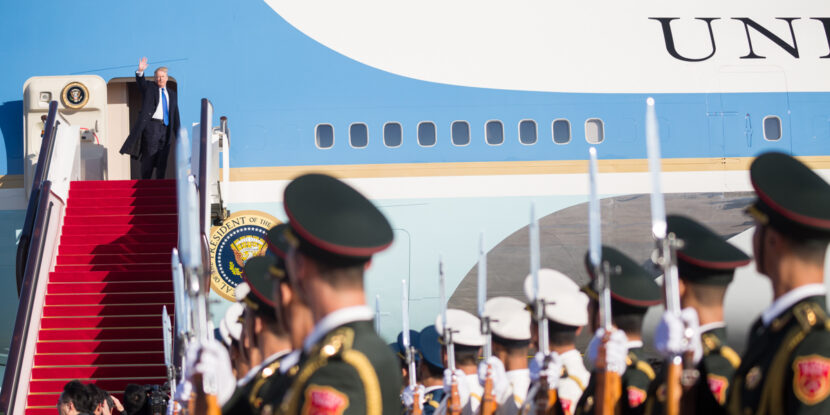
PULSE POINTS:
❓What Happened: Independent journalist and anti-grooming gangs activist Tommy Robinson has requested early release from prison, claiming his confinement is negatively affecting his health.
👥 Who’s Involved: Robinson, his lawyers, barrister Alisdair Williamson KC, the Solicitor General represented by Aidan Eardley KC, and Baroness Sue Carr, the Lady Chief Justice.
Your free, daily feed from The National Pulse.
📍 Where & When: Robinson is held at His Majesty’s Prison (HMP) Woodhill, Milton Keynes. The appeal was submitted recently, following an 18-month sentence imposed last year.
💬 Key Quote: “He is being kept safe by the authorities in segregation, but being kept safe is making him ill,” argued Robinson’s barrister.
⚠️ Impact: A judicial ruling on Robinson’s appeal is expected later, with potential implications for prison management of inmates with mental health concerns.
IN FULL:
Anti-grooming gangs activist Tommy Robinson has approached the Court of Appeal to request early release from prison, citing adverse effects on his health due to his current confinement conditions. Robinson is serving an 18-month sentence for contempt of court.
Robinson’s incarceration results from breaching a court order after an expensive 2021 libel lawsuit over the fact he had accused a Syrian migrant of violent behavior. Despite the court order banning him from repeating the accusations, Robinson released the documentary Silenced, which interviewed local people who interacted with the Syrian, in defense of his claims. However, the film’s release was deemed contempt by the courts after the government went out of its way to bring a contempt case against him.
During the recent appeal hearing, his barrister Alisdair Williamson KC highlighted evidence pointing to Robinson’s struggles with complex post-traumatic stress disorder (PTSD) and ADHD. This medical case forms the basis for seeking a modification of his current isolation for safety reasons, which is reportedly worsening his condition. “He is being kept safe by the authorities in segregation, but being kept safe is making him ill,” said Williamson.
Placed in a closed section of the prison, Robinson is granted limited interaction with others. While he has access to various facilities, his routine is considerably restricted, intensifying concerns from his legal team about his psychological well-being.
Representing the Solicitor General, Aidan Eardley KC countered these assertions, arguing that the prison’s conditions are not more severe than initially expected. The court adjourned without a decision on the appeal. Senior judges are expected to deliver their ruling at a later date.

PULSE POINTS:
❓What Happened: China increased tariffs on U.S. goods to 125 percent in response to U.S. tariff hikes on Chinese products.
👥 Who’s Involved: China, the United States, President Donald J. Trump, and the Chinese Ministry of Finance.
Your free, daily feed from The National Pulse.
📍 Where & When: The announcement was made on Friday.
💬 Key Quote: “The U.S.’s imposition of abnormally high tariffs on China seriously violates international economic and trade rules…” claims China’s Ministry of Finance.
⚠️ Impact: U.S. products, including soybeans, pharmaceutical drugs, and airplanes, are affected; tensions between the two nations rise, with implications for international trade systems.
IN FULL:
Beijing is striking back against the United States, imposing a 125 percent tariff on American goods. The move follows U.S. President Donald J. Trump clarifying on Thursday that the effective tariff rate on Chinese imports now stands at 145 percent, up from the previous 125 percent.
Among American goods falling under the new Chinese import duties are soybeans, pharmaceuticals, and aircraft. The duty on soybeans is likely to be the most impactful, as while China exports far more to the United States than it imports, the American goods that China does buy tend to be agricultural.
In announcing the new trade measures, the Chinese Ministry of Finance accused the United States of violating international trade norms and engaging in economic coercion. “The U.S.’s imposition of abnormally high tariffs on China seriously violates international economic and trade rules,” claimed the ministry.
The U.S. had cited China’s involvement in the fentanyl trade as a factor for the tariff increase. President Donald J. Trump has been vocal about what he perceives as China’s long-standing unfair trade practices against the U.S., cautioning Beijing against further retaliation. Trump’s recent statements emphasize the need for China to recognize that its economic practices are unsustainable.
In response to the U.S. tariffs, Chinese officials maintain that the new rates leave no viable market for American exports to China. “If the U.S. continues to impose tariffs on Chinese goods exported to the U.S., China will ignore it,” the Chinese ministry remarked. However, it is important to note that China—a surplus economy—is far more reliant on the U.S. purchasing Chinese goods than vice-versa.
China appears to have halted efforts to defend its currency, the yuan Renminbi, against the U.S. tariffs. After initially devaluing earlier in the week, the yuan began to appreciate again last night. Notably, the Chinese purposefully devalue the yuan to give the country’s exports a competitive advantage in global trade.
show less

 2 months ago
7
2 months ago
7








 English (US) ·
English (US) ·